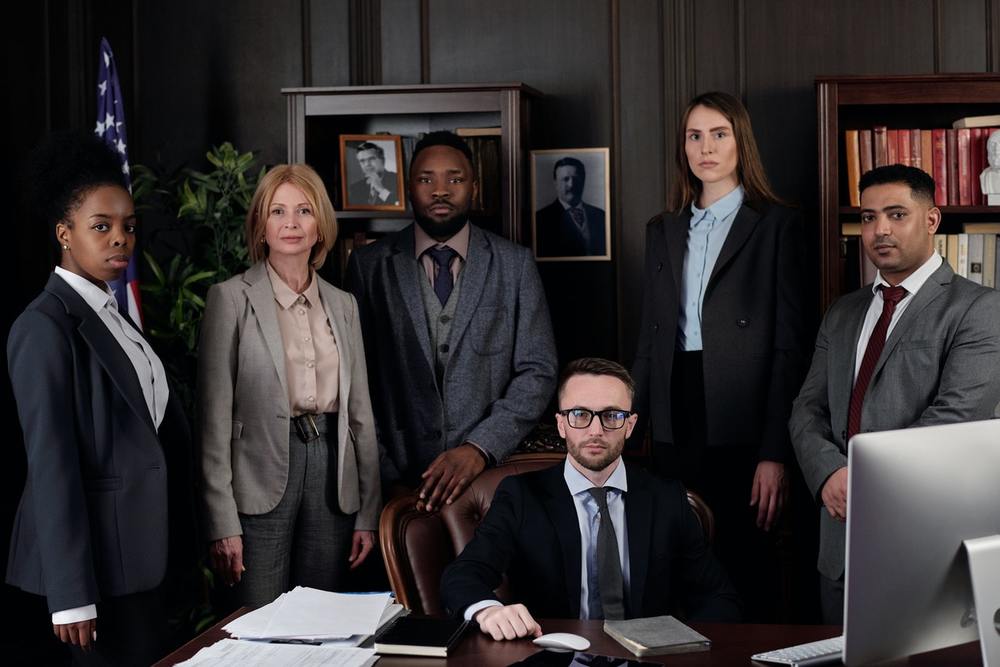<h1>Become a Sports Attorney: A Comprehensive Guide to Success</h1>
<p>As a lifelong sports enthusiast, I had always been fascinated by the intersection of law and athletics. With its unique combination of legal acumen and sports knowledge, becoming a sports attorney seemed like the perfect career path for me. My journey to becoming a sports attorney taught me valuable lessons and opened doors to an exciting world where I could combine my passions.</p>
<p>Growing up, I witnessed firsthand the challenges athletes faced in navigating complex contracts, endorsements, and legal disputes. This ignited a desire within me to advocate for their rights and help them navigate the complexities of the sports industry.</p>
<h2>Steps to Becoming a Sports Attorney</h2>
<p>Pursuing a career as a sports attorney requires a combination of legal education, sports knowledge, and networking.</p>
<h3>1. Obtain a Bachelor's Degree</h3>
<p>The first step is to earn a bachelor's degree in a field that provides a strong foundation for legal studies. Consider majoring in pre-law, political science, economics, or sports management.</p>
<h3>2. Attend Law School</h3>
<p>After completing your bachelor's degree, you will need to earn a Juris Doctor (J.D.) degree from an accredited law school. Focus on developing a strong understanding of contract law, employment law, and sports-related regulations.</p>
<h3>3. Gain Experience and Build Connections</h3>
<p>During law school and beyond, pursue internships at sports agencies, law firms specializing in sports law, or athletic organizations. This will provide invaluable hands-on experience and establish connections with potential employers.</p>
<h2>Understanding Sports Law</h2>
<p>Sports law encompasses a wide range of legal issues that affect athletes, teams, and organizations in the sports industry. It involves:</p>
<ul>
<li><strong>Contract Negotiations:</strong> Drafting and negotiating contracts for athletes, coaches, and team owners.</li>
<li><strong>Arbitration and Litigation:</strong> Representing athletes and organizations in disputes involving contracts, injuries, or disciplinary matters.</li>
<li><strong>Intellectual Property:</strong> Protecting the trademarks, logos, and other intellectual property of sports organizations.</li>
<li><strong>Antitrust and Regulatory Compliance:</strong> Ensuring compliance with antitrust laws and regulations governing the sports industry.</li>
</ul>
<h2>Career Opportunities</h2>
<p>Sports attorneys work in various settings, including:</p>
<ul>
<li><strong>Law Firms:</strong> Specializing in sports law, representing athletes and sports organizations.</li>
<li><strong>Sports Agencies:</strong> Negotiating contracts, securing endorsements, and managing the careers of athletes.</li>
<li><strong>Athletic Organizations:</strong> In-house counsel providing legal guidance to teams and leagues.</li>
<li><strong>Government and Non-Profits:</strong> Regulating and promoting sports at the local, state, and federal levels.</li>
</ul>
<h2>Tips and Expert Advice</h2>
<p>Based on my experience, here are some tips for aspiring sports attorneys:</p>
<p><em>Develop a Deep Understanding of Sports:</em> Stay up-to-date on sports-related laws, regulations, and trends. Attend seminars, read industry publications, and network with professionals in the field.</p>
<p><em>Build Strong Communication Skills:</em> Sports attorneys must effectively communicate with athletes, coaches, agents, and legal professionals. Practice your presentation and negotiation skills to build confidence and credibility.</p>
<h2>Frequently Asked Questions</h2>
<ol type="1">
<li><em>What are the earning prospects for sports attorneys?</em></li>
<p>Earning potential varies depending on experience, location, and practice area. According to PayScale, the average annual salary for sports attorneys is around $125,000.</p>
<li><em>Is it difficult to become a sports attorney?</em></li>
<p>Yes, becoming a sports attorney requires a significant investment of time and effort. However, with dedication, hard work, and a passion for sports, it is an achievable goal.</p>
<li><em>What are the personal qualities of a successful sports attorney?</em></li>
<p>Successful sports attorneys are passionate about sports, possess strong analytical and negotiation skills, and have a keen understanding of the legal landscape affecting the industry.</p>
</ol>
<h2>Conclusion</h2>
<p>Becoming a sports attorney is a rewarding career that combines a love of sports with a legal profession. By following these steps, tips, and advice, you can increase your chances of success in this competitive field. Remember, the journey to becoming a sports attorney requires dedication, perseverance, and a deep passion for both sports and the law.</p>
<p>Are you interested in learning more about becoming a sports attorney? Share your thoughts and questions in the comments section below.</p>

Image: www.youtube.com

Image: www.howtobecomejob.com
How To Become A Sports Attorney